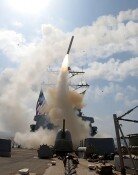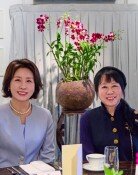Aug. 15 messages from leadership of Seoul and Tokyo
Aug. 15 messages from leadership of Seoul and Tokyo
Posted August. 16, 2019 07:39,
Updated August. 16, 2019 07:39
South Korean President Moon Jae-in sent a public message of “overcoming Japan” rather than an anti-Japan stance in a Liberation Day address marking the end of Japan’s colonial rule of Korea in 1945. Without mentioning Japan’s wartime atrocities including forced labor and sex slavery, which were key topics in the ongoing conflicts with Japan, the president said that South Korea will “gladly join hands” with Japan “if it chooses dialogue and cooperation.”
President Moon’s Liberation Day message had gained attention as a watershed in the Seoul-Tokyo relations that had been at its worst in decades. It can be said that his cautious stance showed a possibility that Seoul will try to put the conflict with Tokyo under control. He also expressed his perception that the people of Japan “were also able to cast off the yoke of imperialistic oppression and were liberated from wars of aggression.”
In Japan, Emperor Naruhito said in his message marking the end of World War II, “Looking back on the long period of postwar peace, reflecting on our past and bearing in mind the feelings of deep remorse, I earnestly hope that the ravages of war will never be repeated.” While he followed in his father’s footsteps in expressing “deep remorse” over the war, it is meaningful that he mentioned “remorse” in his first public message on past history since his ascension to the throne in May. Japanese Prime Minister Shinzo Abe adhered to his practice of borrowing his predecessors’ remarks on the war to express remorse on the war and a will not to start a war. He also reportedly said that private-sector exchanges between the two neighboring countries should continue. Since the Japanese cabinet decided to take South Korea off Japan’s “whitelist” of favored trade partners on August 2, the Japanese government has not taken any additional measure against Seoul.
Of course, it is premature to determine that the two countries will shift from their hardline stances against each other. A meeting between their vice foreign ministers, which was planned to be held in a third country around Thursday has been cancelled, while the August 24 deadline for South Korea to notify Japan of whether to maintain the GSOMIA, a bilateral military intelligence-sharing pact, is approaching. Against this backdrop, Seoul is making all-out diplomatic efforts ahead of the G7 summit.
However, it is meaningful that the two countries’ leadership refrained from escalating the feud at the important watershed of August 15. Even though it may be difficult to immediately restore bilateral dialogue, it is important that the two neighbors seek to reduce friction, rather than deteriorating the situation. In that respect, President Moon’s expression of hope that next year’s Tokyo Olympics “will be a golden opportunity for East Asia to solidify the framework of friendship and cooperation” is seen as his dismissal of some South Koreans’ call on Seoul to boycott the international sporting event. Just as the South Korean president said in the address, both countries must remember that they should cooperate to prosper together.







